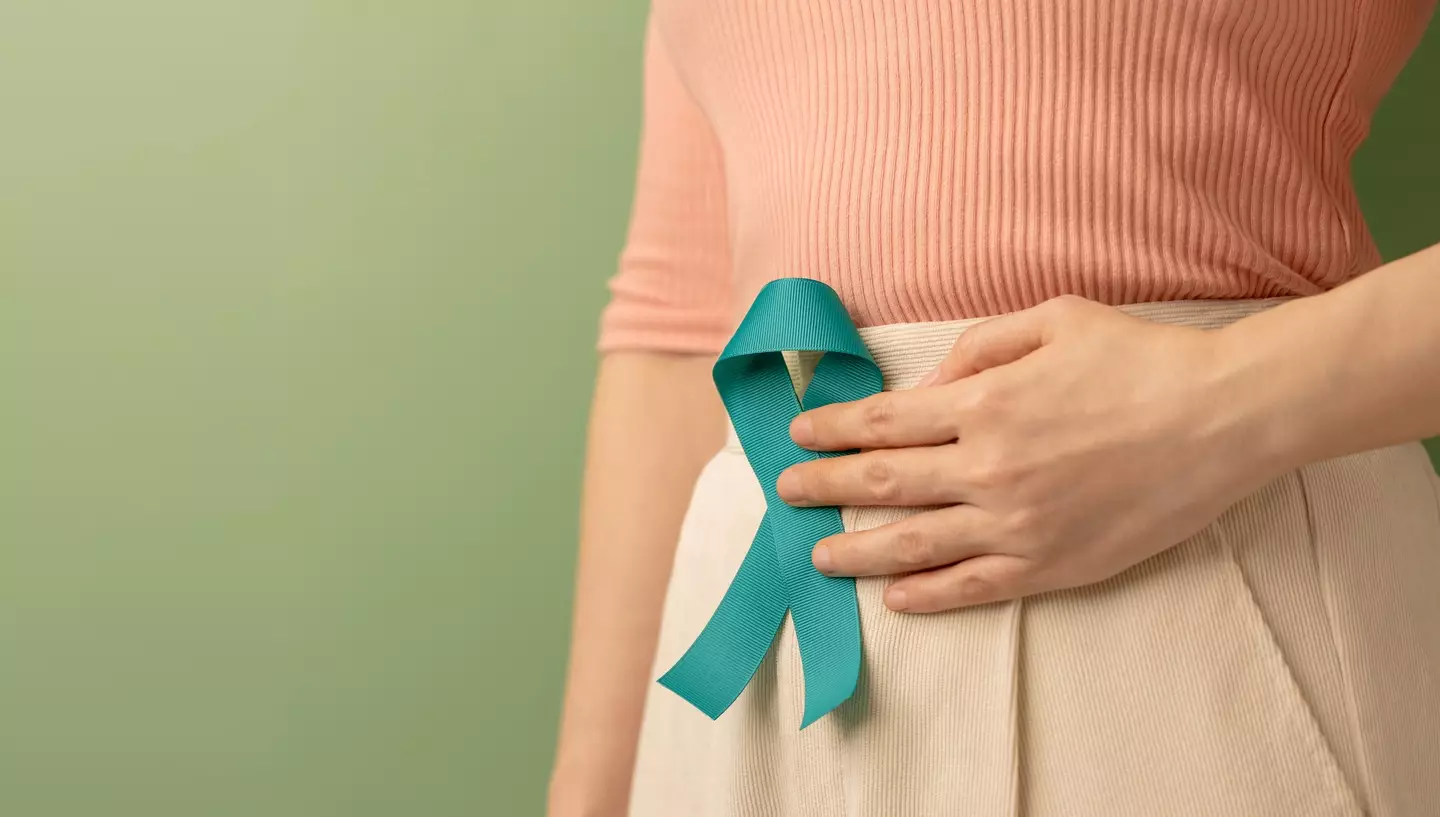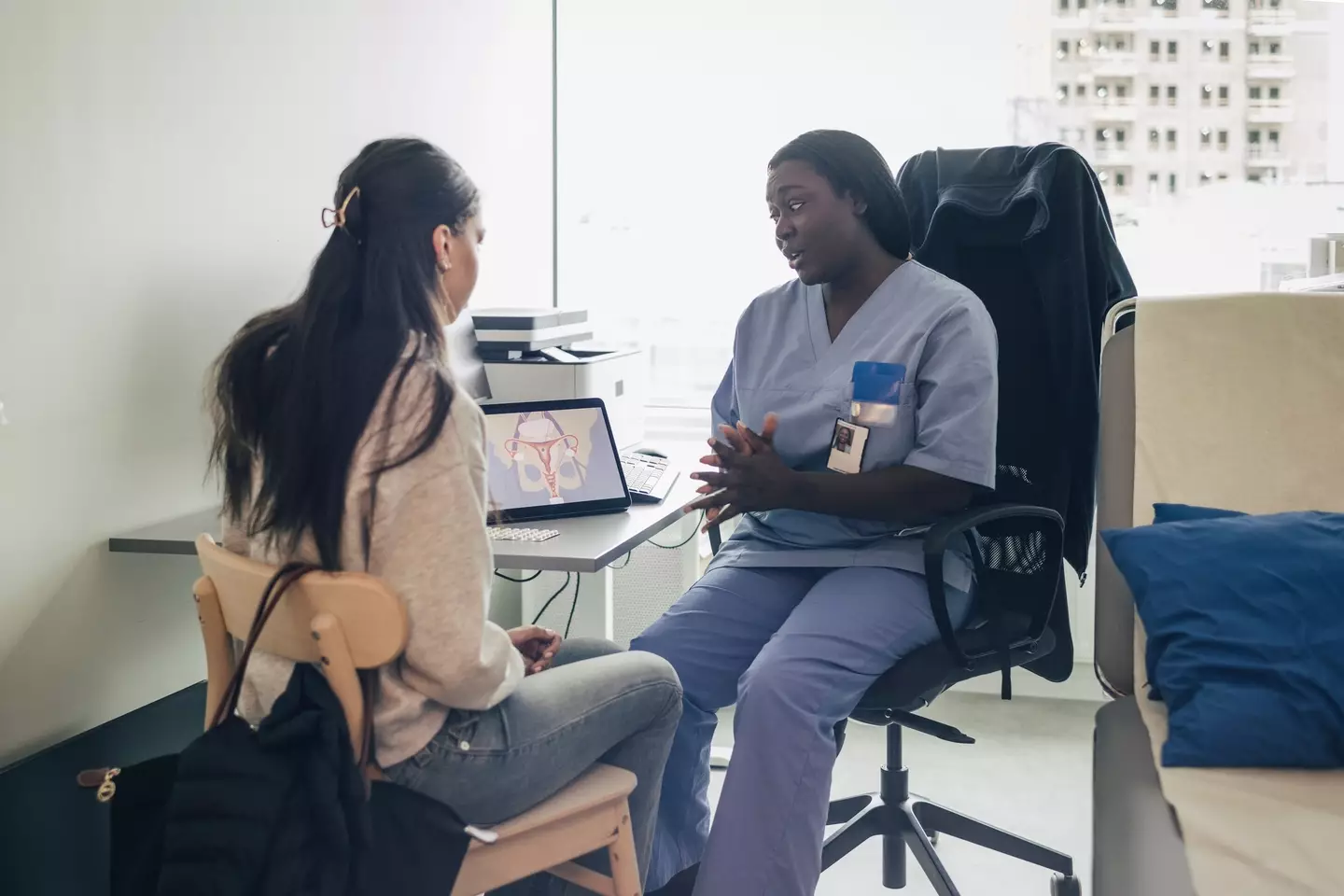
Warning: This article contains discussion of cancer which some readers may find distressing.
Researchers believe they have established a link between the age at which women lost their virginity and the risk of developing cervical cancer
Every year in the US, 11,500 new cases of cervical cancer are diagnosed, with around 4,000 American women dying from the disease, according to the US Centers for Disease Control and Prevention.
While cervical cancer is said to be most common in women aged between 30 and 35, NHS states that 'anyone with a cervix can get it'.
Advert
And almost all cases of the disease are thought to be caused by high-risk human papillomavirus (HPV).

A study conducted by Chinese scientists wanted to see if the age at which a person first has sexual intercourse (AFSI) and the lifetime number of sexual partners (LNSP) had a direct effect on the risk of getting cervical cancer.
After analyzing genetic data from a database of DNA samples, results suggested that having sex at an earlier age was linked to a slightly lower risk of cervical cancer. On the other hand, the number of sexual partners did not seem to have any significant effect on cervical cancer risk.
It found that women with cervical cancer who lost their virginity under the age of 18 were around one percent more likely to develop the disease than those who had sex at 18 and over.
The research also suggested that those who had sex under 18 had increased chances of developing cervical cancer by one percent each year younger.
The study concluded that having sex at an earlier age might have a small effect on the risk of developing cervical cancer. However, the number of sexual partners did not appear to have an effect.

The conclusion in the paper, published in Science Direct in January last year, read: "Our findings suggest a potential causal relationship between early AFSI and cervical cancer.
"The results of this study provided a theoretical basis for the development of prevention, health care, and treatment strategies for patients with cervical cancer."
It's worth noting that there are a few risk factors that might increase someone's chances of developing cervical cancer.
And while it cannot always be prevented, there are a number of things women can do to help protect themselves from the disease. According to the NHS, this includes cervical screening, HPV vaccination and practising safe sex.
Meanwhile, the first ever ovarian cancer vaccine is being developed in the UK by a team of scientists at the University of Oxford.
Researchers said the OvarianVax teaches the immune system to recognise ovarian cancer in its earliest stages and attack it.
There were an estimated 238,484 women living with ovarian cancer in the US in 2021, according to the National Cancer Institute.
Ahmed Ahmed, lead on the vaccine project, said: "We need better strategies to prevent ovarian cancer. OvarianVax could offer the solution to prevent cancer in women at high risk.
"Teaching the immune system to recognise the very early signs of cancer is a tough challenge. But we now have highly sophisticated tools, which give us real insights into how the immune system recognises ovarian cancer."
If you’ve been affected by any of these issues and want to speak to someone in confidence, contact the American Cancer Society on 1-800-227-2345 or via their live chat feature, available 24/7 every day of the year.
Topics: Cancer, Health, US News, Sex and Relationships